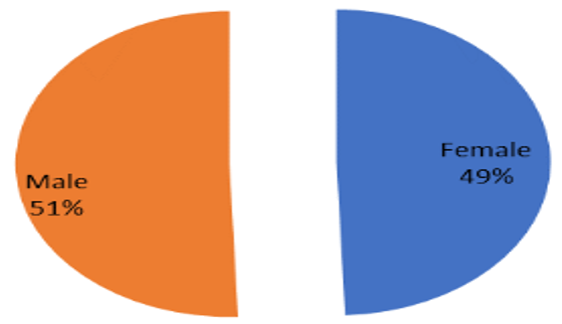Abstract
Oral Candidiasis an important opportunistic fungal infection in HIV patients. This is the first sign of HIV infection. It can spread from the mouth through the pharynx to the oesophagus. Oral Candidiasis is most regularly complicated with oesophagal Candidiasis, which may restrain nourishment and result in weight reduction, alarming the overall health of the HIV tainted persons. In present study, we have a tendency to determine in Candida species by blend of Restriction Fragment Length Polymorphism (RFLP) examination of PCR from HIV tainted people and furthermore we demonstrated that phenotypic and genotypic identification method was vital to work out the species. We recognized seventy-two Candida confines acquired from a hundred and fifty patients contaminated with HIV by utilizing PCR-RFLP assay. All inclusive primers for the internal transcribed spacer (ITS) area (ITS1– ITS4) of the fungal DNA qualities were utilized for this measure. We distinguished the diverse Candida spp. By utilizing the limitation enzyme MspI. Here most of the isolates were obtained from male patients 40(51%). Candida albicans was the recurrent species segregated (46.8%) pursued by C. tropicalis (30.3%), C. glabrata (7.59%), C. parapsilosis (6.3%) C.dubulinesis (6.3%) along with C. krusei (2.5%) detected successfully. PCR- RFLP is a high definite, sensitive, quick, reliable technique and also applicable method for fungal detection in clinical laboratory for identification of medically important Candida spp.
Full text article
Authors

This work is licensed under a Creative Commons Attribution-NonCommercial-NoDerivatives 4.0 International License.

